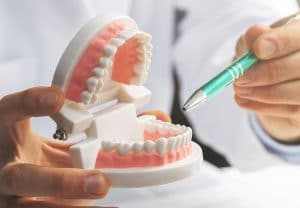 Not all tooth replacement options are the same. For some people, the best solution is to replace a lost tooth, or multiple adjacent teeth, with a custom-designed dental bridge. For others, the dispersed nature of their lost teeth means they’ll need a partial denture to successfully fill the gaps in their smiles. However, what many dental restorations share in common is a need for dental implants to more closely resemble the root can crown structures of your healthy teeth. Dental implants are often better at replacing lost teeth because the loss of the tooth’s is essential to restoring your smile. (more…)
Not all tooth replacement options are the same. For some people, the best solution is to replace a lost tooth, or multiple adjacent teeth, with a custom-designed dental bridge. For others, the dispersed nature of their lost teeth means they’ll need a partial denture to successfully fill the gaps in their smiles. However, what many dental restorations share in common is a need for dental implants to more closely resemble the root can crown structures of your healthy teeth. Dental implants are often better at replacing lost teeth because the loss of the tooth’s is essential to restoring your smile. (more…)
How Obvious Is Your Dental Emergency?
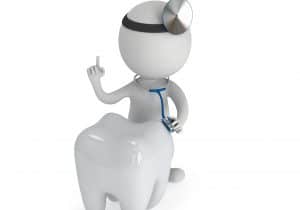 Many people expect a dental emergency to be something dramatic and obvious, like accidental trauma to the tooth or a tooth being knocked out of its socket. Because of this expectation, many people fail to notice signs that their smiles are facing another type of emergency. When you don’t seek treatment for it promptly, the situation can become significantly worse, leading to the need for extensive treatment to fully restore your smile. Today, we explain a few times when your dental emergency isn’t so obvious, and what you can do to better protect your smile from such circumstances. (more…)
Many people expect a dental emergency to be something dramatic and obvious, like accidental trauma to the tooth or a tooth being knocked out of its socket. Because of this expectation, many people fail to notice signs that their smiles are facing another type of emergency. When you don’t seek treatment for it promptly, the situation can become significantly worse, leading to the need for extensive treatment to fully restore your smile. Today, we explain a few times when your dental emergency isn’t so obvious, and what you can do to better protect your smile from such circumstances. (more…)
How High Is Your Risk of Tooth Loss?
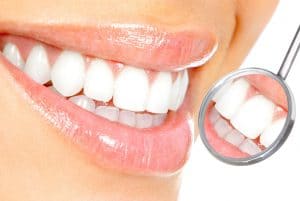 When you take consistently good care of your oral health, including sticking to your daily hygiene schedule and regular dental checkup appointments, you have a much better chance of preserving all of your healthy, natural smile. However, even the most attentive hygiene and preventive dental care routines are no guarantee that you’ll continuously prevent oral health concerns from developing, including those that can often lead to tooth loss. Today, we explore how you can tell if you might be at a higher risk of tooth loss than you realize, and why it’s important to address the concern for the good of your smile and oral health. (more…)
When you take consistently good care of your oral health, including sticking to your daily hygiene schedule and regular dental checkup appointments, you have a much better chance of preserving all of your healthy, natural smile. However, even the most attentive hygiene and preventive dental care routines are no guarantee that you’ll continuously prevent oral health concerns from developing, including those that can often lead to tooth loss. Today, we explore how you can tell if you might be at a higher risk of tooth loss than you realize, and why it’s important to address the concern for the good of your smile and oral health. (more…)
Repairing a Tooth Whose Damage Is Still Minor
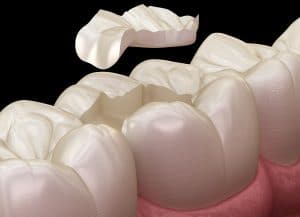 When a tooth has a large fracture in it, or a piece breaks off of its crown structure, then the need to fix the tooth as soon as possible might be obvious. If nothing else, the pain in the tooth may be enough to force you to seek treatment if only to alleviate it. While the symptoms and consequences of tooth damage aren’t always as obvious when the damage is minor, the threat to your tooth’s health and integrity can be just as serious. (more…)
When a tooth has a large fracture in it, or a piece breaks off of its crown structure, then the need to fix the tooth as soon as possible might be obvious. If nothing else, the pain in the tooth may be enough to force you to seek treatment if only to alleviate it. While the symptoms and consequences of tooth damage aren’t always as obvious when the damage is minor, the threat to your tooth’s health and integrity can be just as serious. (more…)
How to Prepare Your Smile for Dental Implants
 When you receive dental implants to replace one or more lost teeth, the implant posts and your natural jawbone structure surrounding it do most of the work. As the bone structure heals, it fuses to the biocompatible implant posts. When this process is complete, the implant posts take on the brunt of your bite’s pressure, supporting your dental restoration and stimulating your jawbone from that point forward. The biocompatibility of dental implants and their success in integrating with your dental ridge makes them the ideal solution in most cases of tooth loss. However, for them to be successful, you may need to prepare your oral health and structures to receive them by addressing one or more existing concerns. (more…)
When you receive dental implants to replace one or more lost teeth, the implant posts and your natural jawbone structure surrounding it do most of the work. As the bone structure heals, it fuses to the biocompatible implant posts. When this process is complete, the implant posts take on the brunt of your bite’s pressure, supporting your dental restoration and stimulating your jawbone from that point forward. The biocompatibility of dental implants and their success in integrating with your dental ridge makes them the ideal solution in most cases of tooth loss. However, for them to be successful, you may need to prepare your oral health and structures to receive them by addressing one or more existing concerns. (more…)
Types of Teeth that Dental Crowns Restore
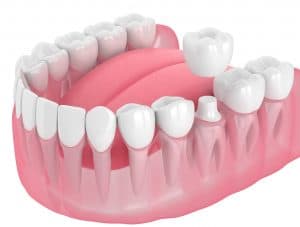 Different types of dental restorations are typically designed to a specific type and range of concern with your tooth and/or oral health. For example, minor cases of tooth wear, small cavities, and more can often be effectively addressed by restoring the tooth with a small amount of composite dental resin. However, for more extensive cases of tooth damage, restoring the tooth may require a more comprehensive option, such as completely covering and protecting the tooth with a lifelike dental crown (more…)
Different types of dental restorations are typically designed to a specific type and range of concern with your tooth and/or oral health. For example, minor cases of tooth wear, small cavities, and more can often be effectively addressed by restoring the tooth with a small amount of composite dental resin. However, for more extensive cases of tooth damage, restoring the tooth may require a more comprehensive option, such as completely covering and protecting the tooth with a lifelike dental crown (more…)
What Happens to Your Smile After Losing a Tooth?
 Many people who experience tooth loss recognize the severity of the situation, even if they don’t know exactly what problems are bound to arise from it. Fortunately, this prompts many people to seek to replace their lost teeth as soon as possible, which helps them avoid some of the more devastating, long-term consequences that can result from it. However, not everyone understands the consequences of losing teeth, or how they can become increasingly more complicated the longer it takes to address their condition. Today, we examine what happens to your smile after losing a tooth, and how these changes can impact your oral health and quality of life for years to come. (more…)
Many people who experience tooth loss recognize the severity of the situation, even if they don’t know exactly what problems are bound to arise from it. Fortunately, this prompts many people to seek to replace their lost teeth as soon as possible, which helps them avoid some of the more devastating, long-term consequences that can result from it. However, not everyone understands the consequences of losing teeth, or how they can become increasingly more complicated the longer it takes to address their condition. Today, we examine what happens to your smile after losing a tooth, and how these changes can impact your oral health and quality of life for years to come. (more…)
Why Do Some Teeth Wear Down Faster?
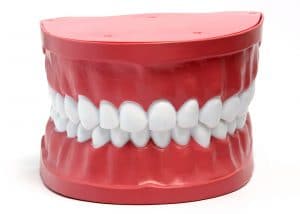 There are many different reasons for your teeth to exhibit certain problems with their structures. One of these problems includes the wearing down of your teeth’s chewing surfaces, which can occur for a number of different reasons and have an even broader range of impacts on your oral health. When your teeth become worn-down, it can directly impact their health and integrity, and the cause of it could become the source of even greater problems for your smile later. Today, we examine why some teeth might wear down fast, what it could mean for the state of your oral health, and how we can help you avoid further problems by restoring your teeth and addressing the cause of their excessive wear. (more…)
There are many different reasons for your teeth to exhibit certain problems with their structures. One of these problems includes the wearing down of your teeth’s chewing surfaces, which can occur for a number of different reasons and have an even broader range of impacts on your oral health. When your teeth become worn-down, it can directly impact their health and integrity, and the cause of it could become the source of even greater problems for your smile later. Today, we examine why some teeth might wear down fast, what it could mean for the state of your oral health, and how we can help you avoid further problems by restoring your teeth and addressing the cause of their excessive wear. (more…)
When Does Extracting a Tooth Require Oral Surgery?
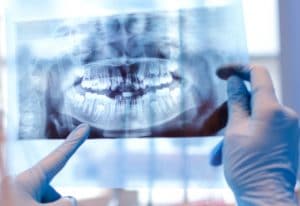 Tooth extraction isn’t the typical answer for most oral health concerns. When a tooth is damaged or decayed, or is compromised by some structural concern, the problem can usually be addressed with the right custom-made dental restoration. When the tooth can’t be saved, extracting it is typically a simple procedure that involves carefully grasping and removing the tooth from its socket. However, depending on the reason why your tooth needs to be extracted, as well as several other important factors, extracting the tooth may require minor oral surgery. (more…)
Tooth extraction isn’t the typical answer for most oral health concerns. When a tooth is damaged or decayed, or is compromised by some structural concern, the problem can usually be addressed with the right custom-made dental restoration. When the tooth can’t be saved, extracting it is typically a simple procedure that involves carefully grasping and removing the tooth from its socket. However, depending on the reason why your tooth needs to be extracted, as well as several other important factors, extracting the tooth may require minor oral surgery. (more…)
What Makes Dental Implants Successful?
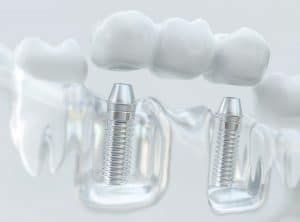 People who experience tooth loss and choose dental implants to rebuild their smiles make the choice for different reasons. For example, if you’ve recently lost one or more teeth, then choosing dental implants can help you preserve more of your smile by addressing the consequences. If you’ve dealt with tooth loss for a while, you might choose implants to provide a more comfortable and stable restoration. However, the fact that dental implants are so successful is often similar for everyone. Thanks to their biocompatible nature and ability to replace your lost teeth roots, dental implants can do more to restore and preserve your smile than conventional restorations. (more…)
People who experience tooth loss and choose dental implants to rebuild their smiles make the choice for different reasons. For example, if you’ve recently lost one or more teeth, then choosing dental implants can help you preserve more of your smile by addressing the consequences. If you’ve dealt with tooth loss for a while, you might choose implants to provide a more comfortable and stable restoration. However, the fact that dental implants are so successful is often similar for everyone. Thanks to their biocompatible nature and ability to replace your lost teeth roots, dental implants can do more to restore and preserve your smile than conventional restorations. (more…)



